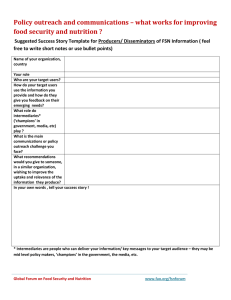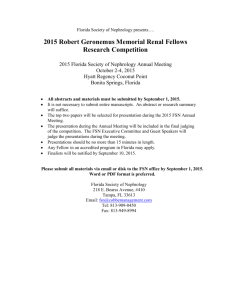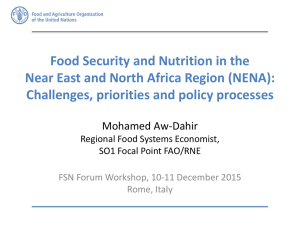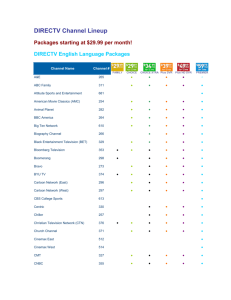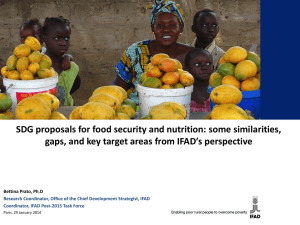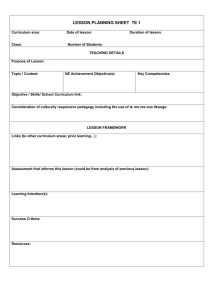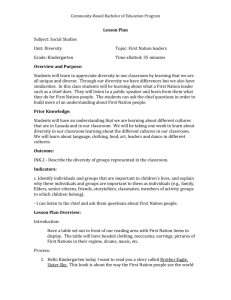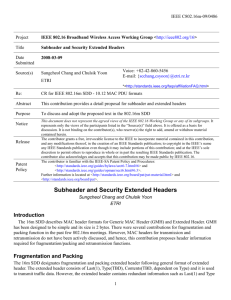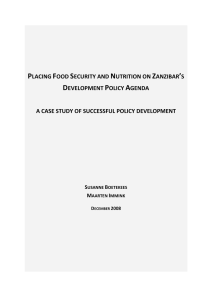EEL 364: AG for FSN Myth Busters Community
advertisement
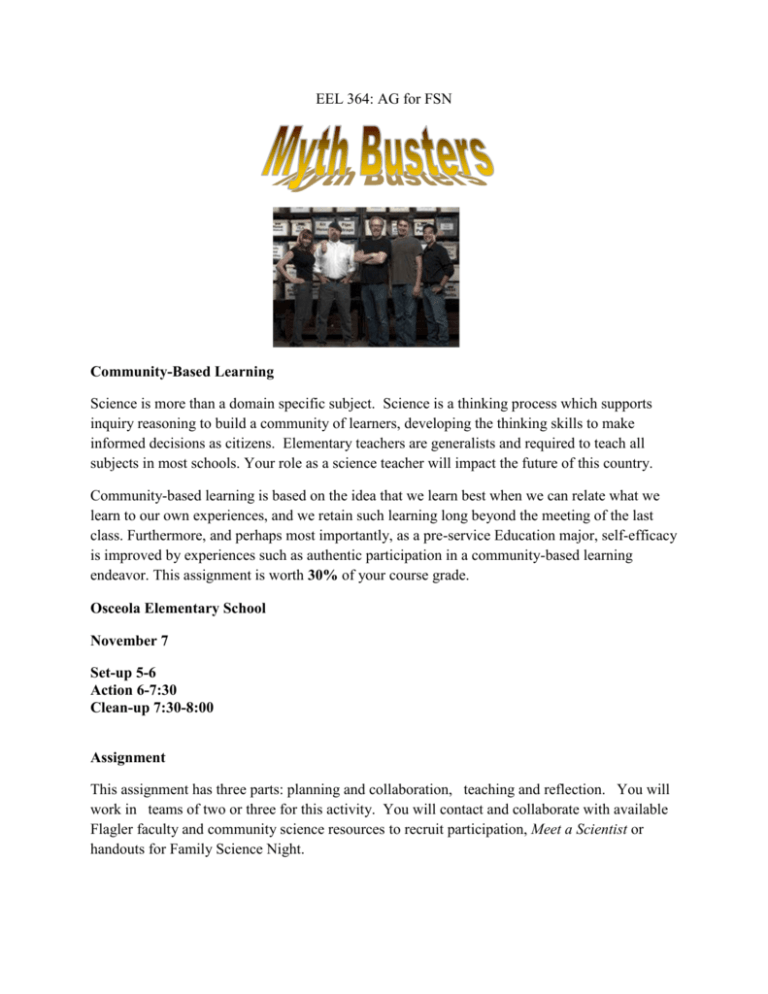
EEL 364: AG for FSN Community-Based Learning Science is more than a domain specific subject. Science is a thinking process which supports inquiry reasoning to build a community of learners, developing the thinking skills to make informed decisions as citizens. Elementary teachers are generalists and required to teach all subjects in most schools. Your role as a science teacher will impact the future of this country. Community-based learning is based on the idea that we learn best when we can relate what we learn to our own experiences, and we retain such learning long beyond the meeting of the last class. Furthermore, and perhaps most importantly, as a pre-service Education major, self-efficacy is improved by experiences such as authentic participation in a community-based learning endeavor. This assignment is worth 30% of your course grade. Osceola Elementary School November 7 Set-up 5-6 Action 6-7:30 Clean-up 7:30-8:00 Assignment This assignment has three parts: planning and collaboration, teaching and reflection. You will work in teams of two or three for this activity. You will contact and collaborate with available Flagler faculty and community science resources to recruit participation, Meet a Scientist or handouts for Family Science Night. Part I. Planning- You will plan a science lesson appropriate for children and families to do together. This lesson will use common readily available materials found in communities and homes, must include collaboration with community or regional groups and you must document how your plans will support social responsibility in this community. You will prepare all materials to include a parent handout. You will teach your lesson in class prior to FSN. (1/3 of assignment grade comes from this part). Although specific details will be provided by your instructor, students will follow the example of the popular television show, Mythbusters. Each student team will choose one science concept, identify a common misconception about that concept, and develop a “booth” that corrects that misconception in a scientifically accurate and engaging manner. The “booth” presentation will go “live” at Family Science Night at a local elementary school. The rubric for this assignment can be found on LMS. Individual team members will be responsible for specified task areas. HOWEVER all team members are expected to work on all components of this assignment. Your teams will have assigned roles as follows: Principle Investigator (PI). This person is the team leader responsible for monitoring all group progress. This is the person who keeps all team members on task, makes sure they are preparing the lesson, materials, and collaborative work. If any one team member does not fulfill their roles and responsibility for this activity the PI is held responsible. Material Manager(MM): This person makes sure all materials for Family Science Night are ready. This person is responsible for bringing all materials for EEL student teaching center to FSN. Recorder/Reporter (RR): This person makes sure all information has been documented and works with the team to prepare the oral report for the reflective narrative. All team members are responsible for FSN implementation and clean-up. The ten students working at GTM for their practicum will be a group that presents the GTM activities at Family Science Night as designated. Lesson Plan Format for FSN You do not need to follow the Formal Lesson Plan Format as required for your formal lesson plan assignment in this course. You will need to turn in and present your lesson before FSN. Here is the format to follow for this. Name(s): Science standard (Broad) Broad Science Content Area: Specific science concepts and skills that support your science standard. Myth/Misconception Question(s) you will be addressing with your activity Identify all materials you will use for this project. This will include backboards, visuals, parent handouts, and materials for actual investigation. Specify who is responsible for each component of this project. Specify how you will introduce your activity. Include possible questions you will use during the activity. (formative and summative) Plan for how to keep the crowd moving. Specify how you will set up your area. Presenting – You will teach your lesson in class as you will at FSN in order to refine your plans and practice your approach. Part II. Teaching: Family Science Night Teaching – You will teach your science lesson at the Family Science Night at a designated Elementary School (K-5) on the designated date and time. You will prepare all materials and teach families the science lesson. You will document your participation with photos, videos and other forms of electronic communication devices (1/3 of assignment grade). Part III. Reflection. Your instructor will provide you with Reflection prompts. Your thorough, carefully considered, and appropriate responses will constitute a significant portion of your grade for this assignment (1/3 of assignment grade). There will be a written narrative (submitted electronically) and an in-class oral presentation. Your narrative must be at least one page (single spaced). Sample Teaching and Learning Prompts Using your lesson plan for this work, what planned specific science concepts were successfully taught and how did you decide this? Identify what you have learned about teaching science. Identify what you have learned about working with parents. How will you use this experience when working in your classroom? Based on your experience how would you alter your plans for this lesson? Sample Community Based Learning Critical Reflection Prompts Given your community-based learning experience, were there any differences between your expectations of the presentation and what actually happened? If so, what were they, and how did they change your perspective? How, specifically, did you apply what you learned in the course to developing your community presentation? What challenges did you have, and what would you do differently in the future? What life experience or learning from another class helped you address the challenges of developing this presentation? How did you use that experience to meet the challenges of this project? How did this experience impact your learning of the _____________course outcome? Did this experience encourage you to more fully engage in, and/or understand the course material? Why or why not? Each student must understand that there he or she is expected to uphold the highest standards of professionalism as a representative of Flagler College in the community. The Community-based Learning experience should be mutually beneficial to all participants. As such, each student will be expected to deliver all products that they commit to in the accepted project timeframe, and to prioritize their personal planning to accommodate this expectation. Similarly, each student is expected to conduct themselves professionally, including professional attire. The continued, potentially long-term relationship between the College, its community partners and future students wholly depends on each individual student embracing their responsibilities.
